

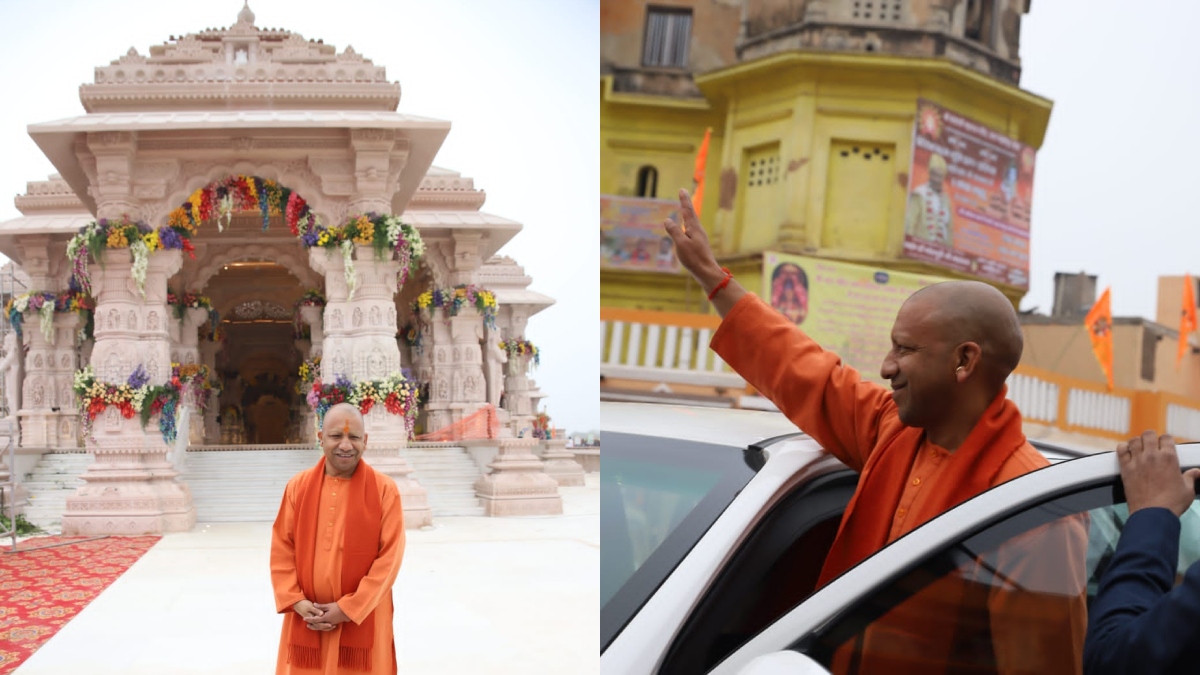
Chief Minister Yogi Adityanath spoke at an event in Ayodhya commemorating the first anniversary of Lord Ram Lalla's Pran Pratishtha, or consecration, at the Ram Temple. Adityanath emphasized the importance of religious unity and the construction of the temple as a symbol of reclaiming rights through democratic means. He also highlighted the historic journey that led to this momentous occasion, including the judiciary's ruling on the disputed site and Prime Minister Narendra Modi's visit to inaugurate the temple's construction.
Ram Mandir: A Symbol of Religious Unity and Democratic Triumph
The Ram Mandir, a grand temple dedicated to Lord Rama, the seventh avatar of Vishnu, is a revered symbol of Hinduism in India. Located in Ayodhya, Uttar Pradesh, the temple has been a site of religious and political significance for centuries. Its construction has been a long-standing demand of Hindu devotees, who have been seeking to reclaim the site where Lord Rama is believed to have been born.
Background of the Ayodhya Dispute
The Ayodhya dispute traces its origins to the 16th century, when the Babri Masjid was built on the site where Hindus believed Lord Rama was born. Over the centuries, the site became a flashpoint of religious tensions, with periodic conflicts erupting between Hindu and Muslim communities.
In 1992, a mob of Hindu nationalists demolished the Babri Masjid, triggering widespread communal violence. The Supreme Court of India ruled in 2019 that the disputed site belonged to the Hindu community, paving the way for the construction of the Ram Mandir.
Construction of the Ram Mandir
Following the Supreme Court's ruling, Prime Minister Narendra Modi laid the foundation stone for the Ram Mandir in August 2020. The construction of the temple is a massive undertaking, with an estimated cost of over $250 million.
The temple is being built in accordance with traditional Hindu architectural principles, using sandstone and marble from various parts of India. It will feature a central sanctum sanctorum housing idols of Lord Rama, Sita, Lakshmana, and Hanuman. The temple complex will also include a museum, a library, and a research center.
Inauguration and Consecration
The first phase of the Ram Mandir's construction was completed in March 2022, and the temple was opened to the public for darshan (viewing of the deities) on August 5, 2022. The inauguration was a grand affair, attended by Prime Minister Modi and other dignitaries.
On August 5, 2023, the Ram Temple marked the first anniversary of Lord Ram Lalla's Pran Pratishtha, or consecration. Chief Minister Yogi Adityanath spoke at an event in Ayodhya to commemorate the occasion, emphasizing the importance of religious unity and the construction of the temple as a symbol of reclaiming rights through democratic means.
Top 5 FAQs Related to the Ram Mandir
1. When was the Babri Masjid demolished? Answer: December 6, 1992
2. When did the Supreme Court rule that the disputed site belonged to the Hindu community? Answer: November 9, 2019
3. When was the foundation stone for the Ram Mandir laid? Answer: August 5, 2020
4. When was the Ram Mandir opened to the public? Answer: August 5, 2022
5. What is the significance of the Ram Mandir? Answer: It is a symbol of religious unity and the reclaiming of rights through democratic means, and a revered place of worship for Hindus around the world.

During a meeting to discuss the devastating California wildfires, US President Joe Biden made a questionable pun that raised eyebrows and sparked backlash on social media. Surrounded by Vice President Kamala Harris and other officials, Biden told those directly affected by the fires to "fire away", to which Harris reacted with a stunned expression. Critics were quick to point out the insensitivity of the statement, questioning the president's priorities and actions in response to the catastrophic event.
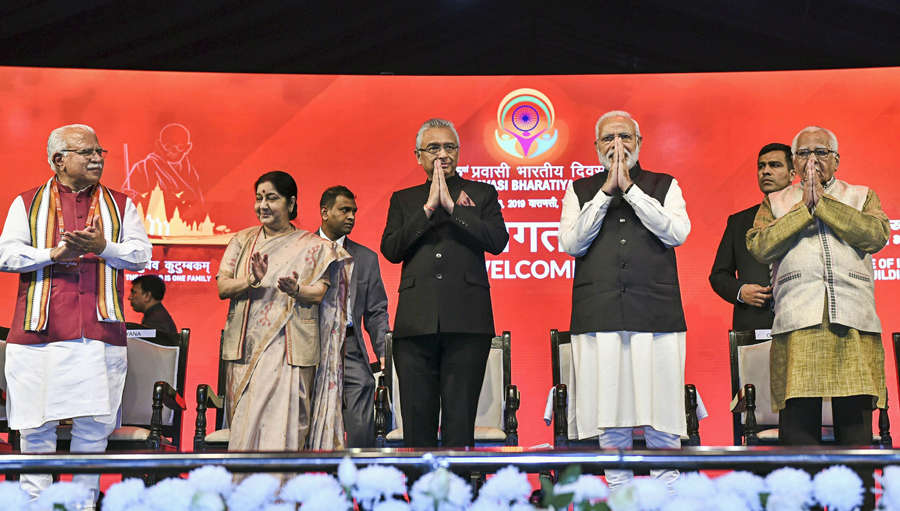
In his address at the 18th Pravasi Bharatiya Divas, Prime Minister Narendra Modi stressed the importance of knowledge and peace, rather than war, in solving problems. He drew parallels to Emperor Ashoka, who renounced violence and spread messages of peace after witnessing the devastation of war. Modi also promised swift action towards addressing concerns of the Indian diaspora and urged Indian youth to play a key role in shaping the country's future.

On the death anniversary of Lal Bahadur Shastri, India's second Prime Minister, we remember his contributions to the country and his humble way of living. From being a strong Congressman to becoming India's first Railway Minister, Shastri dedicated his life to serving the poor and connecting with the masses through his gentle and determined demeanor. Today, we honor his legacy and continue to be inspired by his popular slogan "Jai Jawan, Jai Kisan" which he coined during the 1965 India-Pakistan war.

During a three-day event held to mark the first anniversary of the consecration of Ram Lalla's idol at the Ram Temple in Ayodhya, Uttar Pradesh Chief Minister Yogi Adityanath stated that the temple serves as a reminder to suppressed civilizations and cultures that they have the right to assert themselves democratically and constitutionally. He also spoke about the progress made in Ayodhya, including the construction of an international airport, and expressed his pride in seeing the dream of a Ram Temple finally come true. Adityanath credited the positive beginning made in 2019 by the judiciary's ruling and Prime Minister Narendra Modi's laying of the foundation stone for the temple.
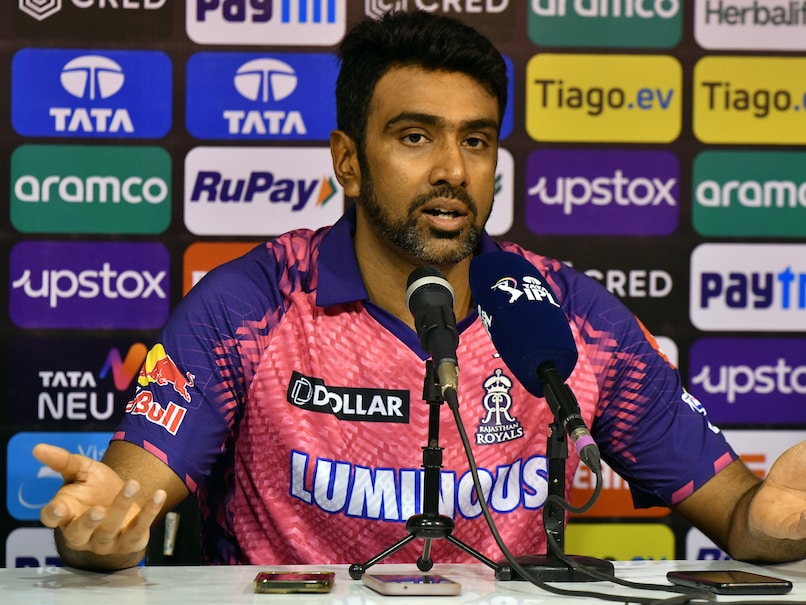
Indian cricketer Ravichandran Ashwin recently caused a stir on social media after his comments on the Hindi language during a graduation ceremony in Tamil Nadu. While addressing the audience, Ashwin stated that Hindi is not the national language but an official language of India, leading to a nationwide debate. This issue highlights the ongoing tensions surrounding the promotion and recognition of Hindi as a unifying language in a diverse nation like India.

On the first anniversary of the Pran Pratishtha ceremony at the Ram Mandir in Ayodhya, Union Home Minister Amit Shah extended his heartfelt wishes to the nation. He expressed gratitude to all those who contributed to the Shri Ram Janmabhoomi movement and stated that the temple will remain a symbol of faith and aspiration for generations to come. He also highlighted the significance of Lord Shri Ram's life and the cultural revival efforts by the Modi government.
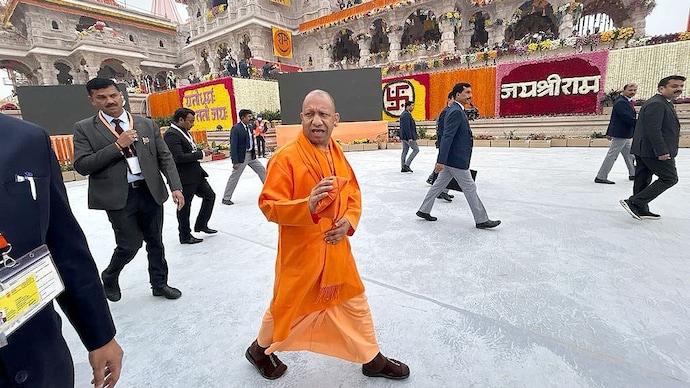
On the occasion of the first anniversary of the consecration ceremony of Ram Lalla at the Ram Temple in Ayodhya, Uttar Pradesh CM Yogi Adityanath made a special visit to seek blessings of Lord Ram. The event holds significance as it falls on the day of the nation's celebration and the CM expressed his elation to be in the holy town. The celebrations, marked by various rituals, prayers, and cultural events, will continue till January 13. PM Narendra Modi also extended his warm wishes and highlighted the temple as a symbol of India's culture and spirituality.
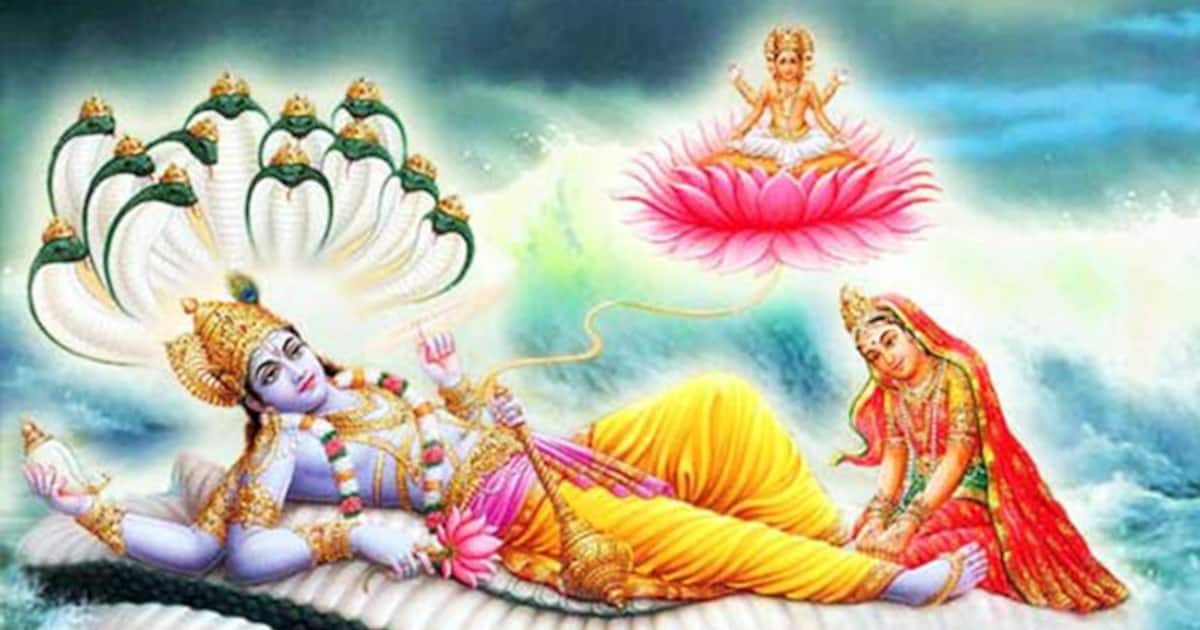
Vaikuntha Ekadashi is a significant day for Hindus, particularly in South India. It is a time to fast and pray to Lord Vishnu for forgiveness and a chance to go to heaven. This year, it falls on January 10, 2025, and devotees celebrate by lighting lamps, chanting mantras, and visiting temples for blessings. The holiday is rooted in the belief that observing it dedicatedly can bring good fortune and a peaceful afterlife.
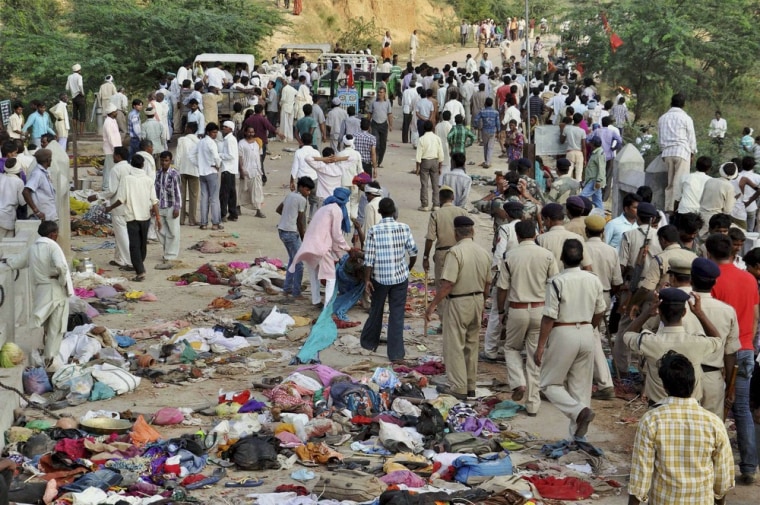
In the aftermath of a tragic stampede at the Sri Venkateswara Swami Temple in Tirumala, Andhra Pradesh Chief Minister Chandrababu Naidu has taken swift action by suspending officials and ordering a judicial probe into the incident. Criticizing the lack of responsibility and failure to assess the situation, Naidu's political opponents are also utilizing the incident to attack his government. Amidst the controversy, the temple's reputation for managing large crowds has taken a hit and measures are being suggested to prevent such incidents in the future.